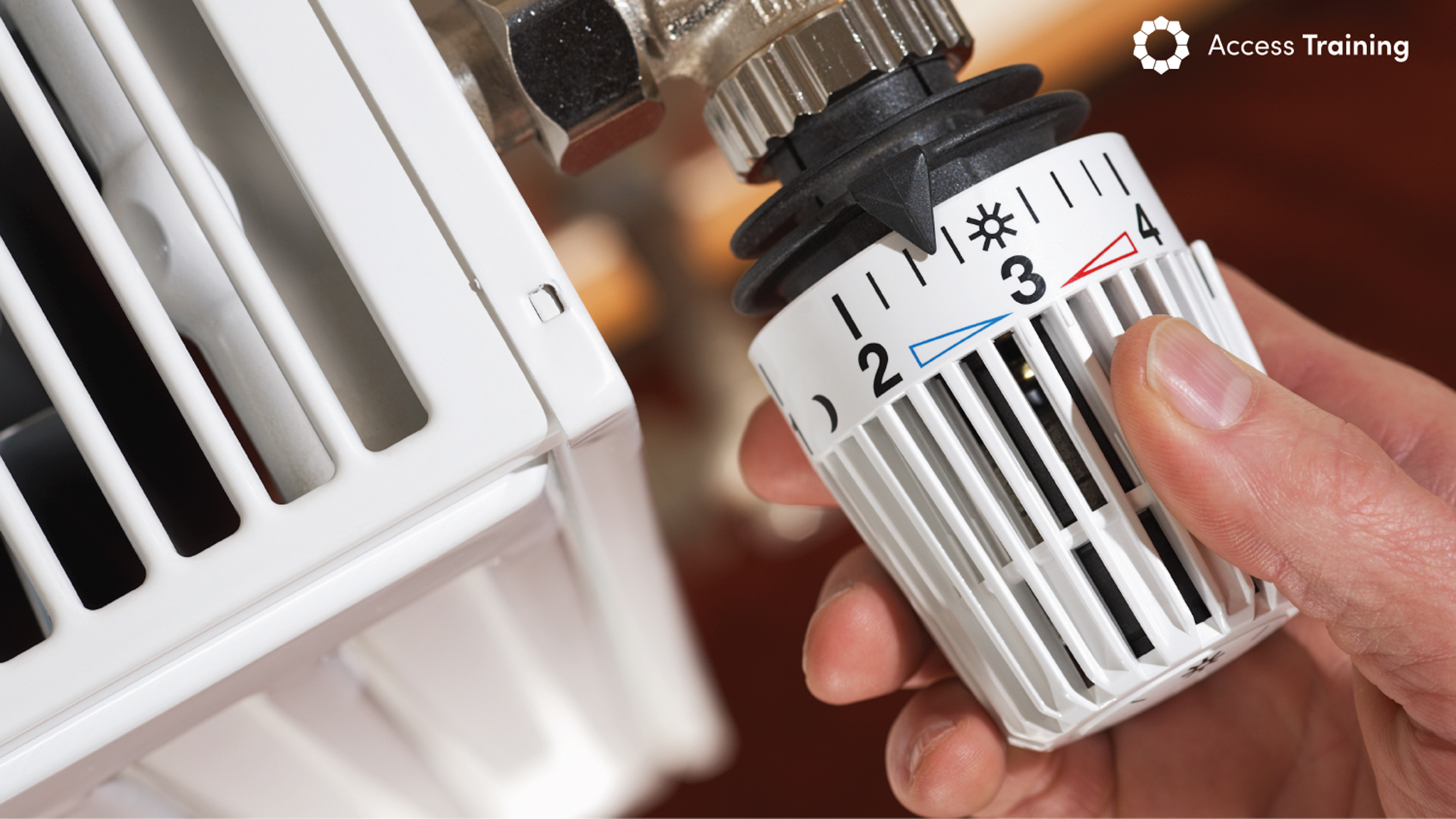
With winter in full swing, you may be wondering whether it is time to turn your heating on. With the current economic crisis doing homeowners no favours, it's natural to be apprehensive about putting on your heating for the first time this year. In 2021, the average gas and electric bill in the UK totalled £111.60 per month, equating to £1,339 per year!
More...

Perhaps the one topic which has dominated recent discussions in the media is the oncoming energy crisis. It has been the subject of much debate and whilst no solution has yet to be presented one thing is certain: the UK faces a challenging winter ahead, and our energy bills are going to rise to unprecedented levels. This being said, there are still plenty of ways you can reduce the cost of your energy bills and minimise your energy output.
More...

The UK is currently in the eye of a storm called the Global Energy Crisis, but our tiny island seems to be taking harsh hits in comparison to other countries. In the UK, we're particularly affected because 85% of our households use gas boilers to heat homes, and 40% of electricity is generated within our gas-fired power stations. This is higher than any other European country.
Due to this, many people have been left wondering whether gas or electric is cheaper in an attempt to curb the increasing energy bills.
More...
Although the general public are becoming more aware of the benefits of using LED lighting in their homes, adoption is still notably slow says a recent survey from Lamp Shop Online.
 LED lighting has already proven itself to be a money saver, saving homeowners as little as £13.63 on their annual lighting bill. With the average household energy bill around £1,420 a year and 8% of that going on lighting every little helps. Even the business world can get a significant saving! A small office with only a handful of fluorescent tubes can save around £85.50 a year by switching to LED tubes, and this figure only goes up as the building gets larger.
LED lighting has already proven itself to be a money saver, saving homeowners as little as £13.63 on their annual lighting bill. With the average household energy bill around £1,420 a year and 8% of that going on lighting every little helps. Even the business world can get a significant saving! A small office with only a handful of fluorescent tubes can save around £85.50 a year by switching to LED tubes, and this figure only goes up as the building gets larger.
However these reductions still don't seem like enough to get homeowners to see the light. Lamp Shop Online's survey found that although 72% of consumers know that LED lighting can be used in the home and 67% know they will reduce their energy bills, many still don’t know how to take the first step to install LED lighting as they are confused over what to search for online. Getting more information on what they need to do to make the switchover is clearly still the biggest obstacle, with 39% of respondents not sure what to put into a search engine to get the relevant results.
28% didn't even know that LED lighting could be used in the home at all, so a lack of information is also a large factor at work.
Neil Kennedy from Lamp Shop Online said he was "surprised" that consumers didn't know where to begin looking for the information available. "This survey shows there is a definite lack of practical information on purchase and installation and concrete statistics on the savings LEDs can offer. Simply put, the lighting industry is not making it easy for consumers to make the switch to LEDs," he said.
He went on to say that creating the survey was a demonstration of their committment to LED lighting, and would now use these results to help encourage more people to read up on and eventually adopt LED products.
More information can be found at www.lampshoponline.com
Via Electrical Contracting News
- Mark Jenkins
-----
Mark Jenkins is the Electrical Course Development Manager here at Access Training. If you would like to take the steps to become a professional electrician, our electrical training courses are the fastest and most effective way to build up the skills you need and gain the necessary qualifications for a prosperous career in the industry. To find out more give us a call on 0800 345 7492.
It's been a long time coming, but at the end of last week the Department of Energy & Climate Change (DECC) finally announced the details for the domestic Renewable Heat Incentive, with the figures expected to provide a much needed boost to the UK's renewable energy industry.
The RHI will allow householders to be paid hundreds of pounds a year for any energy generated by renewable sources such as solar thermal panels, biomass boilers and heat pumps. By persuading people to install and switch over to these methods, it is believed Britain will successfully be able to meet renewable targets and cut down the country's carbon footprint, as well as save householders money on energy bills.
The tariff levels have been set at:
- 7.3p/kWh for air source heat pumps
- 12.2p/kWh for biomass boilers
- 18.8p/kWh for ground source heat pumps
- At least 19.2 p/kWh for solar thermal
Energy & Climate Change Minister Greg Barker said: "The Coalition is committed to helping hardworking families with the cost of living. Investing for the long term in new renewable heat technologies will mean cleaner energy and cheaper bills. So this package of measures is a big step forward in our drive to get innovative renewable heating kit in our homes.
"Householders can now invest in a range of exciting heating technologies knowing how much the tariff will be for different renewable heat technologies and benefit from the clean green heat produced. We are also sending a clear signal to industry that the Coalition is 110% committed to boosting and sustaining growth in this sector"
The scheme will be made available to homeowners, private and social landlords, third party owners of heating systems, people who build their own homes and anyone who has installed a renewable heat system since 15th July 2009. It currently supports air to water heat pumps, biomass only boilers and biomass pellet stoves with back boilers, ground and water source heat pumps, flat plate and evacuated tube solar thermal panels.
Applicants must complete a Green Deal Assessment before submitting their application and ensure they have met minimum loft (250mm) and cavity wall insulation requirements, where appropriate. All installations and installers must be MCS certified (or certified by an equivalent scheme). MCS certified installers are currently required to be members of the Renewable Energy Consumer Code, which is backed by the Trading Standards Institute.
The DECC is currently finalising the details of the expansion of the non-domestic RHI scheme and will confirm what comes next in Autumn alongside the outcome of the tariff review. The DECC's aim to introduce these changes from Spring 2014 onwards remains unchanged.
Full story/more information:
Heating, Ventilation & Plumbing Magazine
Following the mixed response to the first official Green Deal figures, renewable energy measures have taken another hit as the frequently delayed domestic Renewable Heat Incentive hits another snag.
Last week Chancellor of the Exchequer George Osborne released his Comprehensive Spending Review, which featured the new budget for the RHI in the 2015-16 period. The figure is £430 million, which is only £6 million more than the 2014-15 figure.
Neil Schofield, head of government and external affairs at Worchester, Bosch Group, has suggested that this will effectively kill the measure, which is still yet to be introduced properly. After a number of delays, its proper introduction is currently scheduled for Spring 2014.
He went on to say: "The Chancellor is sending a clear message that the future is not renewable energy. The constant delays to the introduction of domestic RHI have led many in the heating industry to believe that there is no real commitment from the Coalition Government towards domestic renewables. The new policy of starving domestic RHI of vital cash effectively sounds the death knell for the scheme."
The domestic RHI is a scheme set to offer home owners significant financial rewards for installing renewable heat technologies such as biomass boilers, air source heat pumps, ground source heat pumps and more. These rewards come on top of the considerable fuel savings that come from switching over to renewable heat products.
Via Installer Online
The Government are now offering a total of £19 million of funding towards coming up with new methods of energy efficiency and reducing the country's carbon footprint. And if you're an entrepreneur with some new and innovative ideas in mind, they're offering a share of that money to you!
This funding is the second phase of the Energy Entrepreneurs Fund, which since autumn 2012 has allocated £16 million toward the introduction of new products in the renewables sector. Previous examples have included energy/heat storage, tidal turbine testing, a thermally-insulating window and the "Eco power shower".
Energy secretary Edward Davey has said: "We’re on the side of innovative businesses and individuals with drive, passion, ideas and entrepreneurial spirit. This funding will get ideas off the ground and into the market, create new green jobs, and help the UK get ahead in the innovation global race.
"An ambitious and driven small business sector can steer the economic recovery in the right direction. So I want to see Britain’s brightest and best SMEs sending in their applications."
The scheme will be seeking the best ideas from both the public and private sectors, aiming to assist small and medium business enterprises. Subject to the demand and quality of applications, the DECC expects to open Calls for projects every four to six months from June 2013 until the full funding has been allocated. During the application process, applicants will be expected to demonstrate a robust evidence based case for funding, that will include but not be limited to:
- the potential impact of the innovation on 2020 and/or 2050 low carbon targets or security of supply
- the technical viability of their innovation and coherent development plan that will commercially progress the innovation; value for money
- the size and nature of the business opportunity.
The deadline for the first call for applications is the 12th July. Interested applicants will need to register their contact details
HERE before the 5th July.
In these days of high energy prices we are all looking for ways to save a few pounds on our electricity bills. I think I may have a way of achieving this saving -get your teenagers to move out of the family home!
A teenagers bedroom consumes large amounts of electricity, TV’s, games consoles, music systems, mobile phone chargers, lights, computers etc. all on at the same time and left on when not in use. Sounds familiar? Over a period of a year (multiplied by the number of teenagers in the home) equates to a large amount of energy being wasted.
We can try to educate them, but to no avail, they don’t listen or is it that they don’t understand? A friend noticed a vast difference in his energy bills once his teenager ‘flew’ the nest to go to university. He calculated that he was saving £10 a month on his electricity bill alone, that’s an annual saving of £120. It may not seem a vast amount of money but it’s a saving that has allowed him and his wife to start a new hobby together, allowing them to have ‘more’ quality time with each other.
He is also making savings on his heating costs as windows are not being left open for the heat to escape and the heating isn’t being left on when no one is in the house! Is the way to save money on energy bills as simple as getting the teenagers to move out? From where I’m sat it looks like a viable answer.
“You can’t do that!” I hear some of you scream. You could try putting timer switches on the sockets, so devices are not left on unnecessary. You could use lamps that are more energy efficient or of a small wattage. These are little things that could make a difference to your wallet at the end of each month.
- Mark Jenkins
With Action Fraud recently reporting that fraudsters in Caerphilly have begun to use the Green Deal as a means of conning unwitting householders, it’s important that people know the basics when it comes to this new Government initiative.
The Green Deal’s aim is to encourage home and business owners to adopt more energy-saving technology in their properties, with the incentive of no upfront costs. Examples of possible improvements include:
- Insulation (Such as loft or cavity wall insulation)
- Heating
- Draught-proofing
- Double glazing
- Solar panels/wind turbines
The installation cost will eventually be paid over time through your energy bill. What makes this unique is that the bill is attached to the property rather than the person, as this is where the money is being saved.
What to do to get involved
- You will need to get an assessment of your property so that it can be determined what improvements can be made to your home. The assessor will also explain how much money you could be saving on your energy bill.
- Choose a Green Deal provider to do the work for you. All Green Deal providers will have a mark of quality (pictured below) – it’s important you look out for this to make sure you are getting the right people for the job.
- If you agree to the work, you will be signing a Green Deal Plan which is a contract stating what work is being done and how much it costs. Once the work is done, you’ll pay off the cost periodically through your electricity bill.
Further reading: https://www.gov.uk/green-deal-energy-saving-measures/?&gclid=CMjpsI3I6LYCFe3MtAod7kQAlw
http://www.greendealinitiative.co.uk/